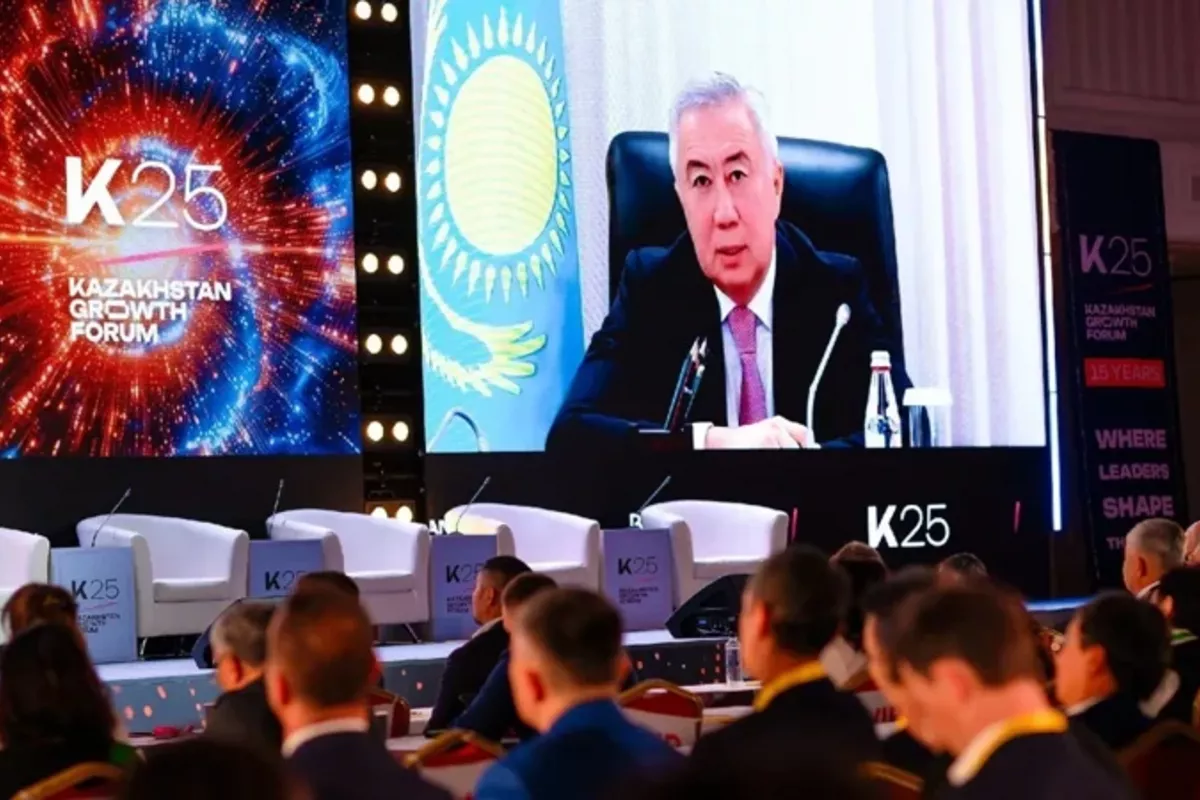
photo: Kazinform
Kazakhstan’s Deputy Prime Minister and Minister of National Economy, Serik Zhumangarin, has delivered a keynote address at the Kazakhstan Growth Forum K25, held virtually and bringing together over 500 entrepreneurs, senior executives, and industry leaders.
The 2025 forum, themed “Customer-Centric Kazakhstan: A New Model of Industrialization,” focused on redefining economic development with an emphasis on consumer needs and modern industrialization strategies, The Caspian Post reports via Kazakh media.
Zhumangarin highlighted 2025 as a transformative year for Kazakhstan’s economy, noting a significant shift away from oil dependence. By the end of 2024, the oil sector’s share of GDP fell to 8.1 per cent, while manufacturing expanded to 12.4 per cent.
The deputy prime minister outlined the government’s oversight of 17 major projects valued at nearly $27 billion, covering sectors such as petrochemicals, agricultural processing, and mechanical engineering. Upcoming automotive plants in Kostanay and Almaty were spotlighted as key developments. Additionally, Kazakhstan is implementing a National Infrastructure Plan through 2029 with an $80 billion budget to further bolster growth.
A significant highlight was the recapitalization of Baiterek, the country’s development finance institution. Despite financial and external challenges, the government is investing 1 trillion tenge ($1.845 billion) this year, leveraging an additional 7 trillion tenge ($12.916 billion), including 4 trillion in foreign currency. These investments, totaling nearly $15 billion, are aimed at stimulating real sector projects and are expected to contribute approximately 1.3 per cent to GDP growth in 2025 - a strategic move described by Zhumangarin as a “viable alternative to oil.”
Transport infrastructure remains a central pillar of economic development. In 2025, Kazakhstan plans to build or repair 13,100 kilometers of highways and 4,000 kilometers of railway. Key projects include the near-completion of the Dostyk-Moyynty rail section, the upcoming Moyynty-Kyzylzhar line, and the Beineu-Saksaul railway - supported by the EBRD and World Bank with over 800 billion tenge in funding - which will enhance the critical Middle Corridor transit route.
Zhumangarin also addressed the need to reform road maintenance systems, citing economic inefficiencies and the burden of state guarantees. Proposed reforms aim to align road upkeep with railway standards to accelerate infrastructure progress.
On international transit, rail freight on the Trans-Caspian International Transport Route is projected to exceed 4.5 million tons in 2025, with potential growth to 7-10 million tons. A recent memorandum with Afghanistan to construct the Turgundi-Herat railroad will integrate Kazakhstan further into the CASA (Central Asia-South Asia) corridor, linking it to Turkmenistan, Afghanistan, and Pakistan.
The deputy prime minister emphasized that the successful execution of these infrastructure and industrial projects over the next 5 to 10 years is vital for Kazakhstan’s economic diversification and sustainable growth.
In a related announcement, Qazaqstan Investment Corporation JSC (QIC), a subsidiary of Baiterek NMH, and Qazaqstan Venture Group Ltd. confirmed their cooperation under the Alem Ventures Fund Limited Partnership Venture Fund.
Share on social media